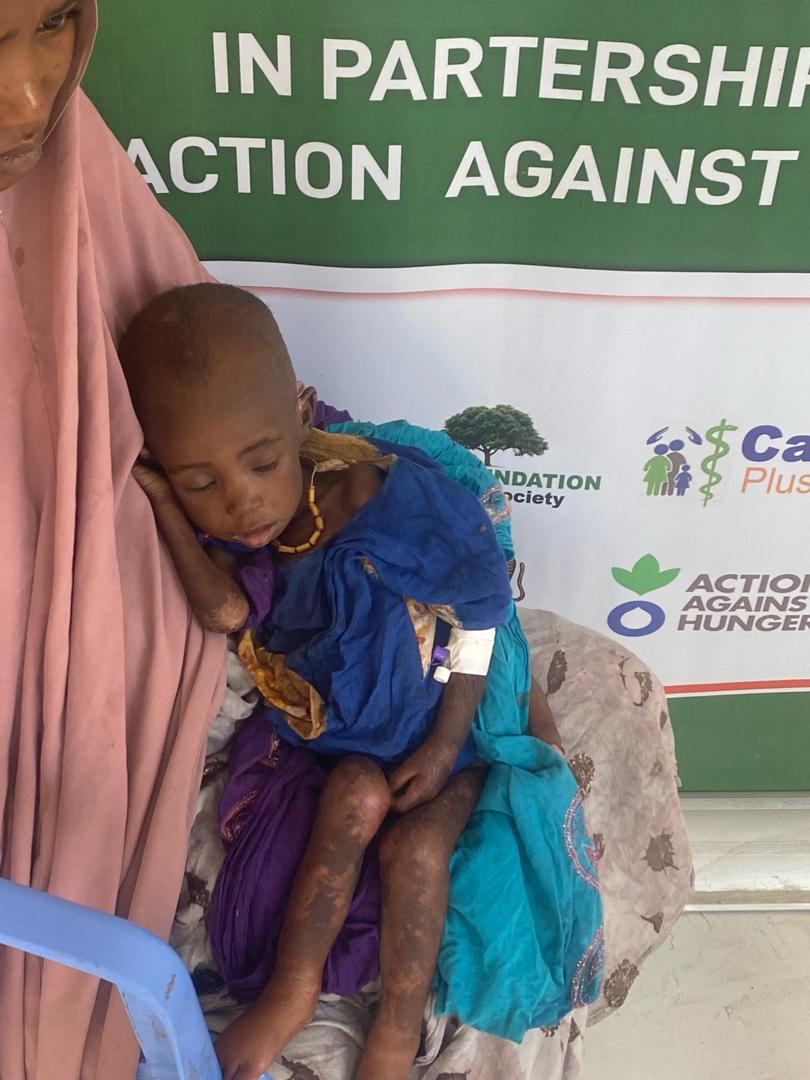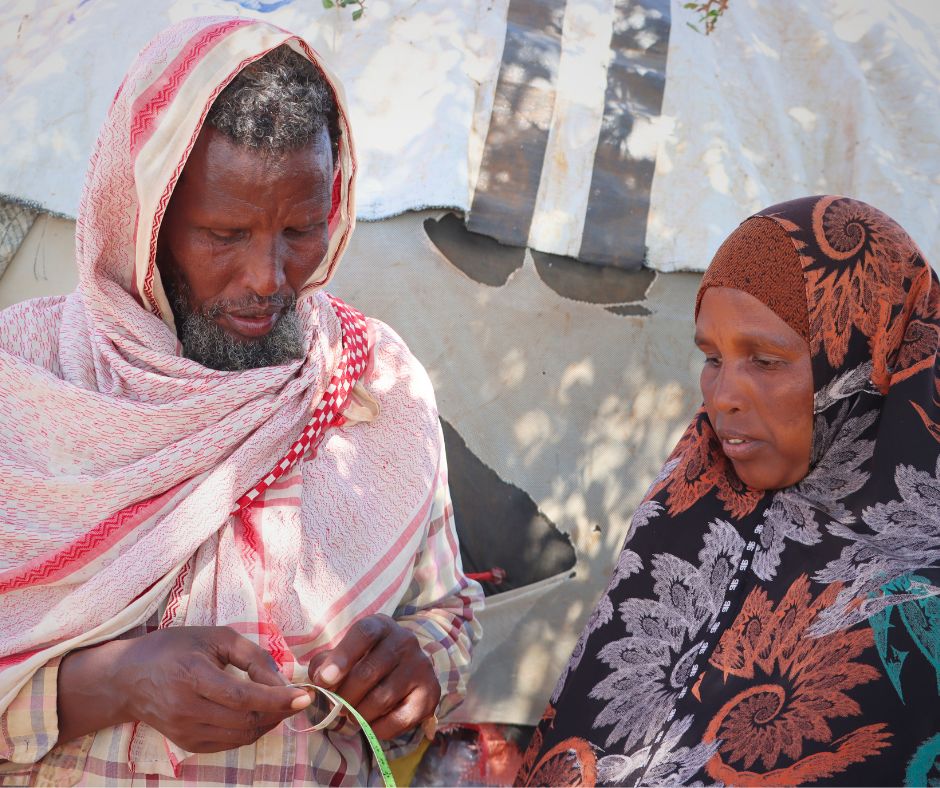Halima, a mother of five children from a rural village (name hidden for security reasons) in Somalia, has been facing immense challenges due to recurrent droughts lasting over five years. These prolonged dry spells have severely depleted food supplies for the large agro-pastoral population in the Lower Shabelle Region, an important agricultural hub. The district is home to displacement camps, while villages relying on small-scale food production have struggled with insufficient rainfall. Nomadic families, like Halima’s, have been particularly affected, as the intensifying droughts and rising temperatures have made animal rearing burdensome.
In mid-January 2023, 33-year-old Halima relocated to Afgoye, a district where more than 201 thousand families urgently require life-saving assistance. However, life became even more challenging when a flood struck the region in November, hindering Halima’s efforts to seek medical help for her eighteen-month-old daughter, Suleeqa. Suleeqa exhibited signs of severe malnutrition, including sunken cheeks, loose skin, and frail limbs.

“She cried throughout the night and vomited whatever she took.” Said Halima.
The year 2023 saw a record-breaking number of 2.9 million people displaced in Somalia due to climatic shocks and conflict. Among them, 2.3 million individuals, accounting for 75 percent, were forced to flee their homes due to climate-related shocks, including 1.7 million affected by flooding and 531,000 impacted by drought. Additionally, conflict and insecurity led to an all-time high of 653,000 newly displaced or re-displaced individuals.
To address the urgent needs of families like Halima’s in the Afgoye district, Juba Foundation, a local humanitarian non-profit organization, has expanded its provision of life-saving emergency assistance. This included healthcare, water, sanitation, hygiene (WASH) services, protection, and nutrition support.
Halima’s daughter, Suleeqa, was diagnosed with severe malnutrition, presenting symptoms such as oedema, body swelling and peeling skin. The health and nutrition team at Afgoye General Hospital attended to her treatment, providing antibiotics to prevent skin infections and deworming medication. Suleeqa underwent a comprehensive treatment plan for malnutrition, which began with an appetite test that was encouraging. The nutrition team provided her with outpatient therapeutic feeds, specifically peanut paste, which had a positive impact on her progress.
After one month in the program, Suleeqa showed remarkable improvement. Her skin greatly improved, and her feeding habits got better as exhibited by Halima’s happiness.
“I gave her the medicine every time as per the doctor’s instruction, and I made sure to collect the nutrition supplies every week. Suleeqa now makes our home active, and her recovery has brought back my smiles as a mother.”
With funding from the European Union Humanitarian Aid, the Caafimaad Plus Consortium, consisting of six humanitarian organizations, including Juba Foundation, is providing critical support to crisis-affected families. Despite the challenges posed by the climate-induced crisis, Rahma Mohamed, head of the nutrition department at Afgoye General Hospital, and her team, are working tirelessly to ensure that life-saving assistance reaches those in need. She believes their services serve as a lifeline for families like Halima’s, and the positive impact can be seen in high cured rates.
Chronic undernutrition has severe consequences, impairing child growth, cognitive and physical development, weakening the immune system, and increasing the risk of morbidity and mortality. Severe acute malnutrition prioritizes the functioning of vital organs, while other organs experience reduced functionality. This phenomenon slows down the digestive system and hampers optimal nutrient absorption.
Through EU humanitarian funding to the Caafimaad Plus Consortium, life-saving nutrition, health, and protection assistance are reaching affected communities. Despite the challenging circumstances, services are being provided using approaches such as the family MUAC approach, CMAM surge, and ICCM+ to ensure support reaches those in need.
Halima will now go back home happy and will be In touch with the health workers, expected to report further progresses of the child.







